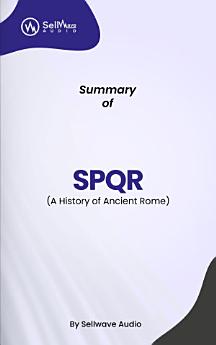Summary of SPQR: A History of Ancient Rome
About this ebook
Rather than focusing solely on emperors, battles, or monumental achievements, Beard digs into how Romans saw themselves, how they governed, how they justified power, and how their society balanced freedom with exploitation, civic pride with civil war, and grandeur with brutality. Beginning in 63 BCE with the dramatic confrontation between Catiline, an ambitious populist aristocrat, and Cicero, the famed politician and orator, Beard highlights the deep tensions between democracy and autocracy—conflicts that continued to define Rome’s history and resonate with modern politics.
The narrative spans nearly a thousand years, from Rome’s mythical founding with Romulus and Remus to 212 CE, when Emperor Caracalla granted Roman citizenship to every free inhabitant of the empire. Along the way, Beard introduces us anew to iconic figures and forgotten voices alike, showing how Roman citizenship, law, and culture created both cohesion and division.
What makes SPQR remarkable is its refusal to accept the comfortable myths often attached to Rome. Instead, it confronts the violence, the inequalities, and the questions about power and responsibility that defined the empire. At the same time, it reveals how deeply Roman ideas about governance, citizenship, beauty, and empire still echo in the modern world.
The result is not just a sweeping history but a provocative conversation across time, reminding us that Rome’s legacy is as troubling as it is inspiring, and its lessons as urgent now as they were two thousand years ago.







